Quotes from Charles Darwin (1809 - 1882) on Evolution, Natural Selection, Science, Humanity, God & Religion



I have called this principle, by which each slight variation, if useful, is preserved, by the term Natural Selection. (Charles Darwin)
Ignorance more frequently begets confidence than does knowledge: it is those who know little, not those who know much, who so positively assert that this or that problem will never be solved by science. (Charles Darwin, Introduction to The Descent of Man, 1871)
 Introduction: On the Philosophy & Metaphysics of Charles Darwin's Theory of Evolution
Introduction: On the Philosophy & Metaphysics of Charles Darwin's Theory of Evolution
For thousands of years many philosophers had argued that life must of been created by a supernatural being / creator / God due to the incredible complexity of Nature (in particular, we humans and our minds). Thus it is remarkable that Charles Darwin (and others) were able to explain our existence by means of Evolution from Natural Selection - which is very obvious once understood.
Below you will find a brief summary of Charles Darwin's Theory of Evolution and some interesting quotes from Darwin on Evolution, Natural Selection, Science, Humanity, God and Religion.
webpage.
Cheers,
Geoff Haselhurst, Karene Howie
Although I am fully convinced of the truth of the views given in this volume I by no means expect to convince experienced naturalists whose minds are stocked with a multitude of facts all viewed, during a long course of years, from a point of view directly opposite to mine. But I look with confidence to the future to young and rising naturalists, who will be able to view both sides of the question with impartiality. (Charles Darwin)
 Charles Darwin's Theory of Evolution
Charles Darwin's Theory of Evolution
Brief Summary
Darwin's theory of evolution is based on five key observations and inferences drawn from them. These observations and inferences have been summarized by the great biologist Ernst Mayr as follows:
1) Species have great fertility. They make more offspring than can grow to adulthood.
2) Populations remain roughly the same size, with modest fluctuations.
3) Food resources are limited, but are relatively constant most of the time.
From these three observations it may be inferred that in such an environment there will be a struggle for survival among individuals.
4)In sexually reproducing species, generally no two individuals are identical. Variation is rampant.
5) Much of this variation is heritable.
From this it may be inferred: In a world of stable populations where each individual must struggle to survive, those with the "best" characteristics will be more likely to survive, and those desirable traits will be passed to their offspring. These advantageous characteristics are inherited by following generations, becoming dominant among the population through time. This is natural selection. It may be further inferred that natural selection, if carried far enough, makes changes in a population, eventually leading to new species. These observations have been amply demonstrated in biology, and even fossils demonstrate the veracity of these observations.
To summarise Darwin's Theory of Evolution;
1. Variation: There is Variation in Every Population.
2. Competition: Organisms Compete for limited resources.
3. Offspring: Organisms produce more Offspring than can survive.
4. Genetics: Organisms pass Genetic traits on to their offspring.
5. Natural Selection: Those organisms with the Most Beneficial Traits
are more likely to Survive and Reproduce.
Darwin imagined it might be possible that all life is descended from an original species from ancient times. DNA evidence supports this idea.
http://en.wikipedia.org/wiki/Charles_Darwin



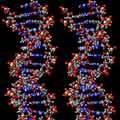
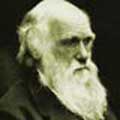
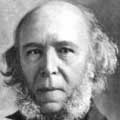

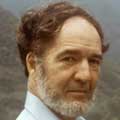


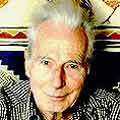
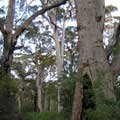









No comments:
Post a Comment